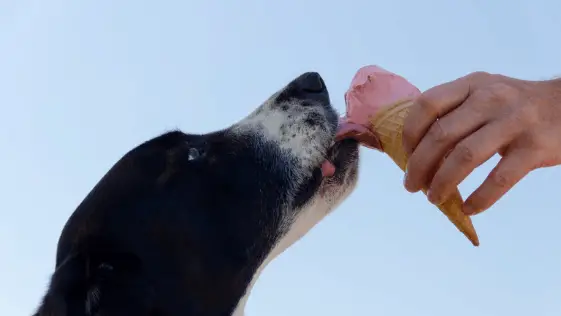Most often, people get tempted to feed dogs what humans eat. The assumption is that whatever is safe for a human being should be good for a dog.
This statement is not necessarily true, thanks to the difference in how dogs and humans digest food. Feeding your dog the wrong food could cause various health complications and even death.
Understanding which foods are toxic and their side effects will always be helpful.
Here are the thirty options your dog should never taste.
1. Apple Seeds

Most people love apples, but they barely know that these fruits are among the foods dogs cant eat. Apple seeds have a toxic casing. They have a natural chemical called amygdalin that releases cyanide, which is harmful when digested in significant quantities. When ingested in plenty, the dog is likely to have significant health issues. The best solution would be to remove these seed casings before feeding your dog.
2. Almonds

It would be best if you never fed your dog almonds. While they are not toxic, they can block the esophagus or tear the trachea. Things can only be worse if the almonds are salted, as they increase water retention. With this, your dog could end up dead, especially if it has a heart condition. For that reason, avoid these almonds.
3. Avocado

Avocado is rich in persin, which causes diarrhea, heart congestion, and vomiting. Its pit is the most dangerous part as it could also pose a choking problem. What is more, the pit is rich in persin, making it less favorable for dogs. Ensure that you get a vet’s help whenever your dog eats avocados.
4. Toothpaste, Gum, Candy, and Mouthwash

While most people find everyday products like toothpaste, gum, candy, and mouthwash are suitable for their health, it would be wrong for dogs. These products often contain sugar and xylitol. These elements contribute to loss of coordination, seizures, vomiting, and liver failure. For safety reasons, ensure that you keep them far away from your dog.
5. Cat Food

Even though cats and dogs are all pets, they cannot share the same type of food. Most cat foods come with fats and proteins. Unfortunately, these elements could be too high for a dog, resulting in health complications. The dog could end up with obesity, pancreatitis, or stomach issues. It would be best to give your dog proteins in small quantities.
6. Chocolate

The theobromine and caffeine in chocolate arouse the nervous system and surge the heart rate. That means chocolate is among the food that dogs can’t eat. Ingesting too much of these elements could result in diarrhea, vomiting, increased urination, restlessness, and seizures. Death could also suffice.
The type of chocolate, the dog’s weight, and the amount of chocolate ingested often determine how sick the dog gets. The most dangerous chocolates are cocoa powder, white, milk, dark, and unsweetened baker’s chocolate. Semisweet chocolate is also an issue.
7. Cinnamon

Cinnamon irritates the dog’s mouth, making it sick and uncomfortable. It lowers sugar levels, decreases heart rates, and causes vomiting, diarrhea, and liver issues. If it is taken in powder form, the dog experiences choking, coughing, and breathing difficulties. Thanks to how fatal it can be, ensure that your dog is nowhere near cinnamon.
8. Citrus

Did you know that the fruits, seeds, peels, and leaves of citrus plants contain varying citric acid quantities? Its varying amounts of citric acid and essential oils can irritate and depress the nervous system. However, the problem only arises if the dog takes it in significant quantities. That means you can feed your dog citrus only in small amounts.
9. Coffee and Tea

Caffeine is an excellent choice for human health, but it has always been a problem for most dogs. It causes hyperactivity, restlessness, vomiting, and increased heart rates. Some dogs could experience high blood pressure, seizures, tremors, and even death. Usually, the effect of caffeine starts after 1 to 2 hours.
10. Cooked Bones

Some bones are among the food dogs can’t eat. Cooked bones tend to splinter when chewed by dogs, which could cause injuries. These broken bones can also cause extensive lacerations on your dog’s digestive system. Conversely, raw bones tend to be healthier and much safer for your dog.
11. Corn on Cobs

Corn is not bad for dogs. However, dogs are often persistent, and your dog could be determined enough to eat the whole cob. With this, you have to worry about it getting choked. It also causes intestinal blockage and even death. As such, ensure that you give your dog corn that is not on cobs.
12. Fat Trimmings

Whether cooked or not, fat trimmings will expose your dog to pancreatitis. Ensure that you seal any trash bag that contains food with fat, denying the dog access.
13. Garlic

Significant amounts of garlic can be an issue for your dog. Garlic causes anemia, thanks to its role in killing red blood cells. Its oxidative element can damage the red blood cells within a relatively short time. Signs that your dog has eaten garlic are breathing difficulties, vomiting, and body weakness. Nausea and oral irritation will also suffice.
14. Raisins and Grapes

Raisins and grapes are rich in anti-oxidant properties, making them ideal for reduced inflammation. However, they are not suitable for your dog. These products result in kidney failure among dogs. If your dog takes grapes and raisins, it ends up with depression and low energy.
15. Hops

Hops are common elements included in beer, and they aim at bittering or flavoring it. This toxic ingredient causes vomiting, elevated heart rates, panting, fever, and fatality when taken by your dog. It would be best if you avoid products that have this aspect.
16. Human Vitamins

Human vitamins come with about 100% of the various recommended minerals, which could be too much for a dog. Prenatal vitamins are the least recommended for dogs, thanks to their high iron content, a toxic element.
17. Liver
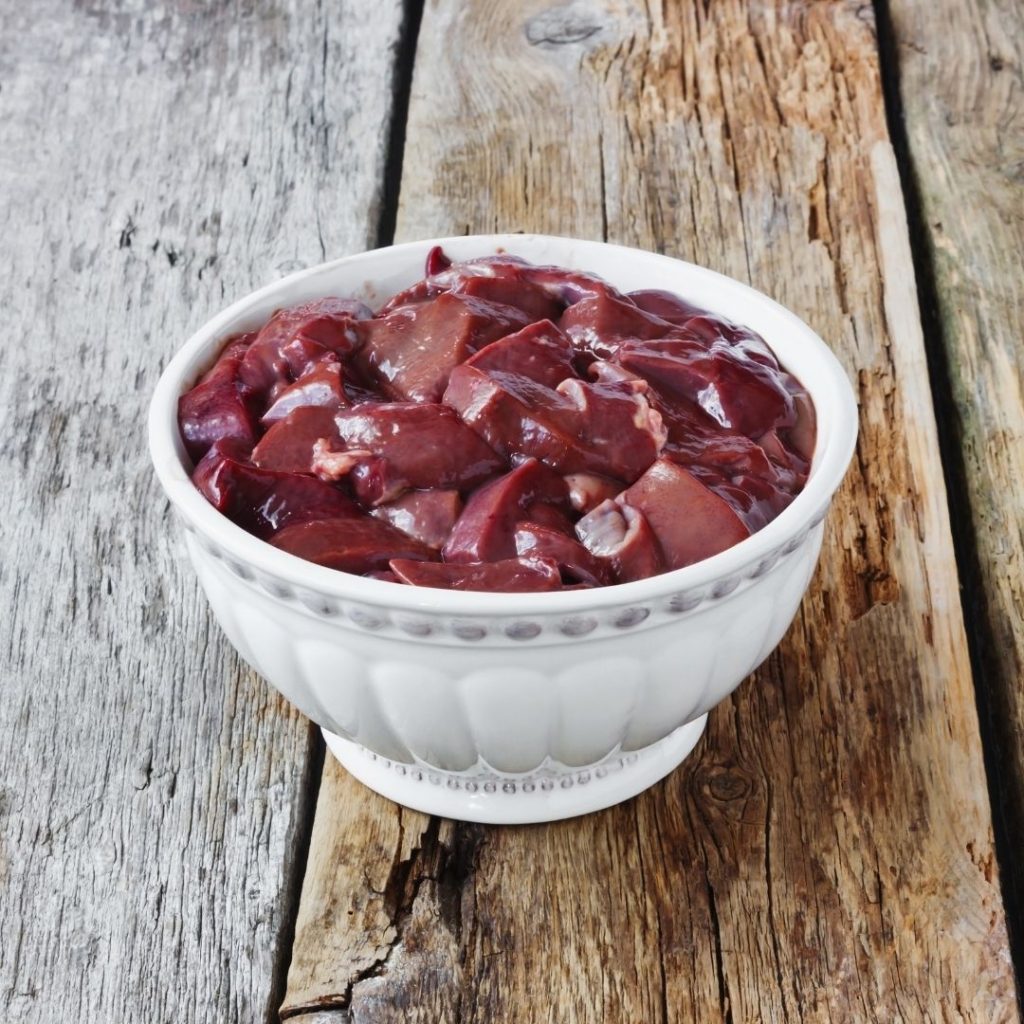
Liver is a delicacy most people cannot overlook. However, it is among the food dogs can’t eat, thanks to how rich it is in vitamin A. This vitamin A readily affects your dog’s bones and muscles. The remedy would be to cut down on the amount of liver you feed your dog.
18. Macadamia
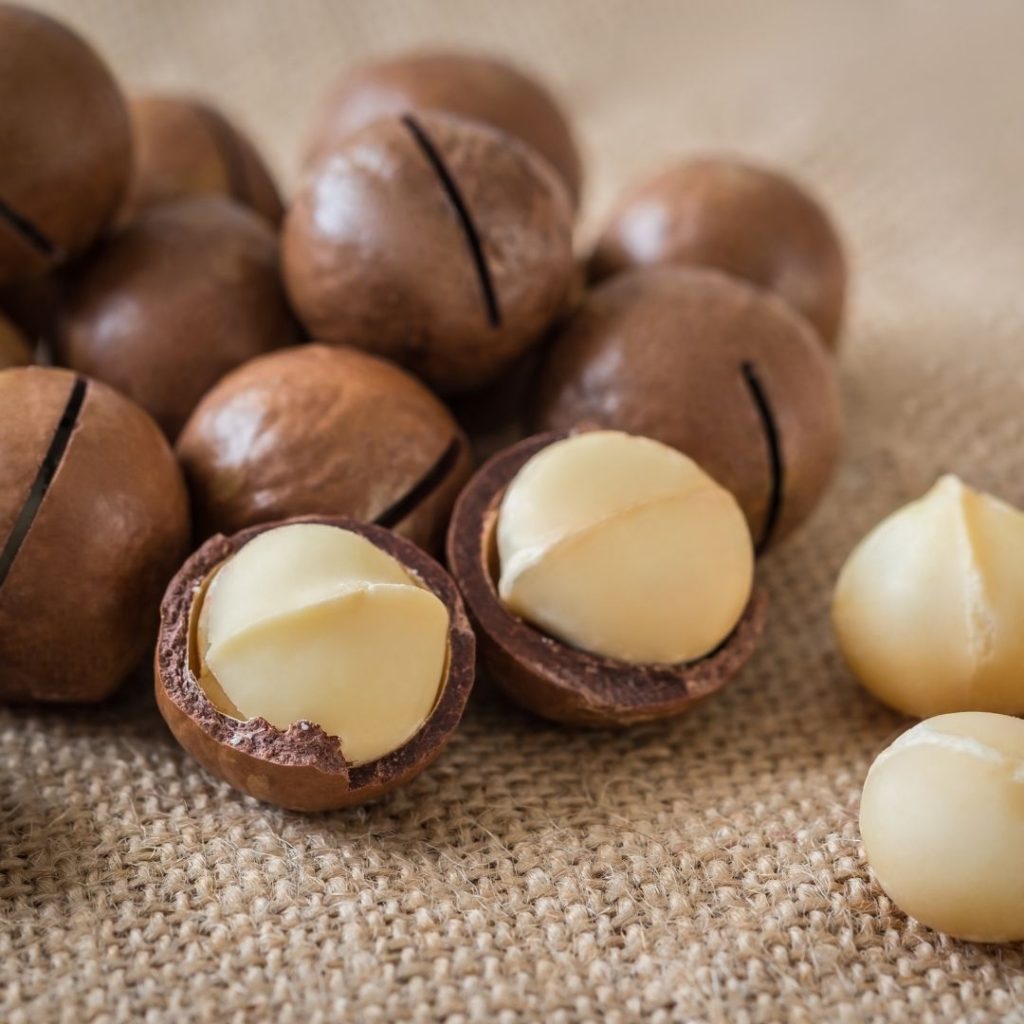
Thanks to how lethal macadamia can be to dogs, it counts among the foods that dogs can’t eat. Its effects are increased temperatures, vomiting, muscle shakes, and weak back legs. If the macadamia is in chocolates, the consequences will be extreme.
19. Marijuana
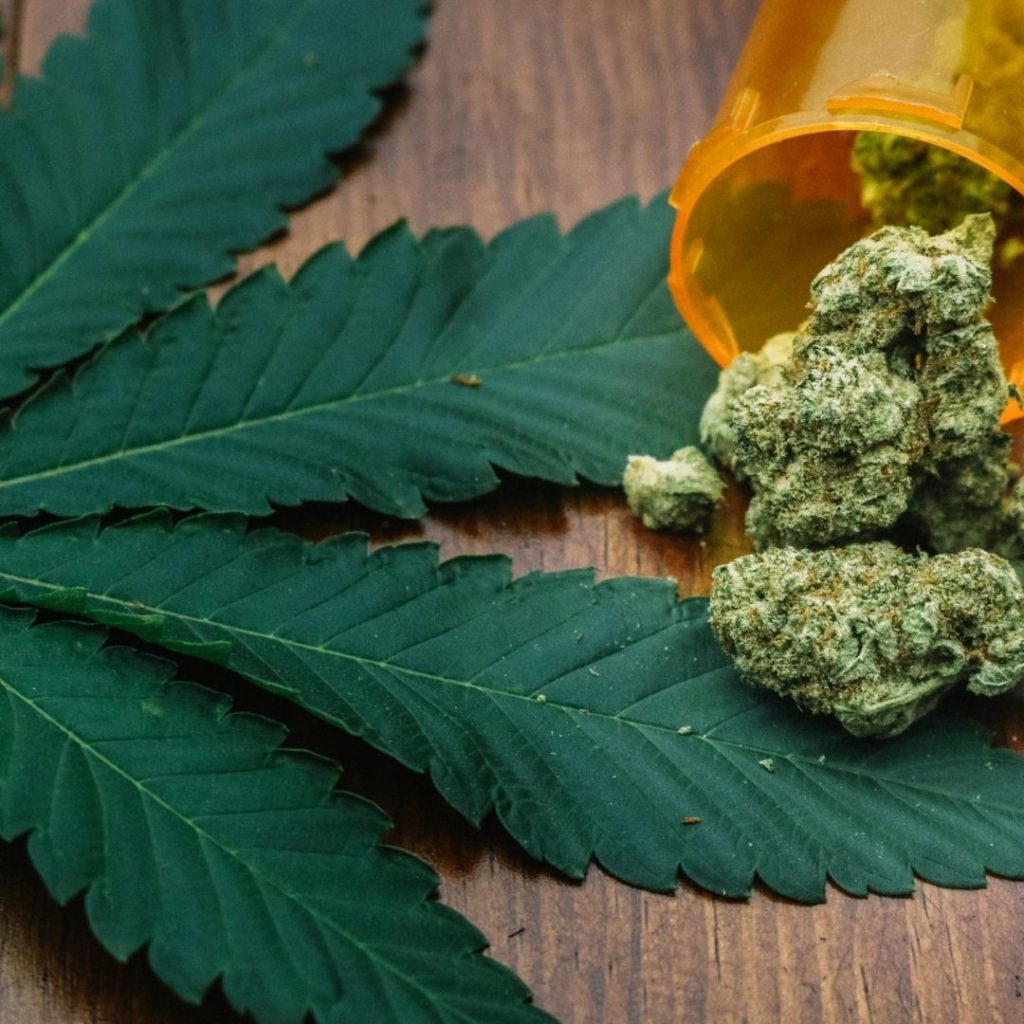
There is no denying that marijuana is approved for health reasons, but that does not mean it is suitable for your dog. Depending on the amount ingested, marijuana can have adverse neurological effects on your dog. It causes dribbling urine, heart rate elevation, coma, hyperactivity, and neurological stimulation.
20. Dairy Products and Milk
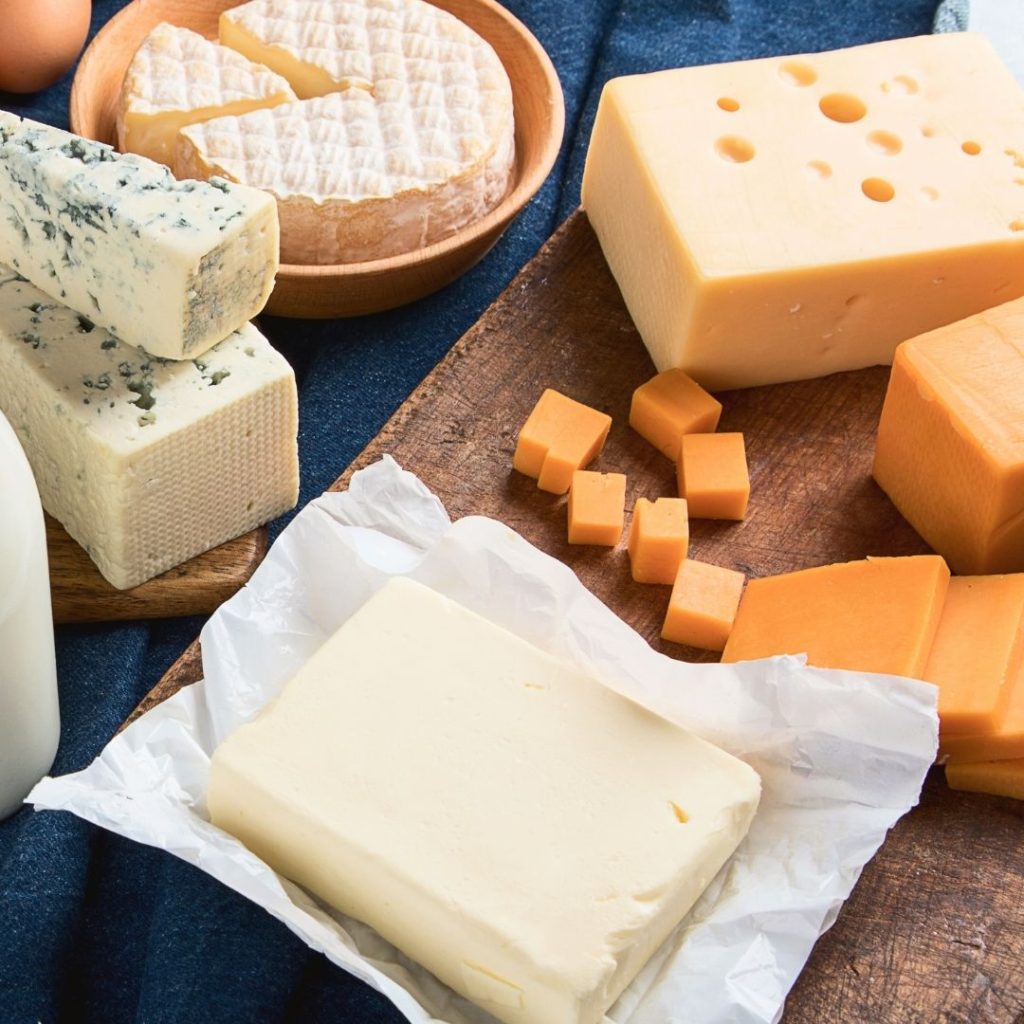
Dairy products cause smelly farts and diarrhea among dogs, mostly if consumed in significant amounts. These products could also trigger food allergies and digestive issues. Besides that, these products come with a considerable amount of proteins. However, you could give your dog these products in relatively small quantities.
21. Onions and Chives
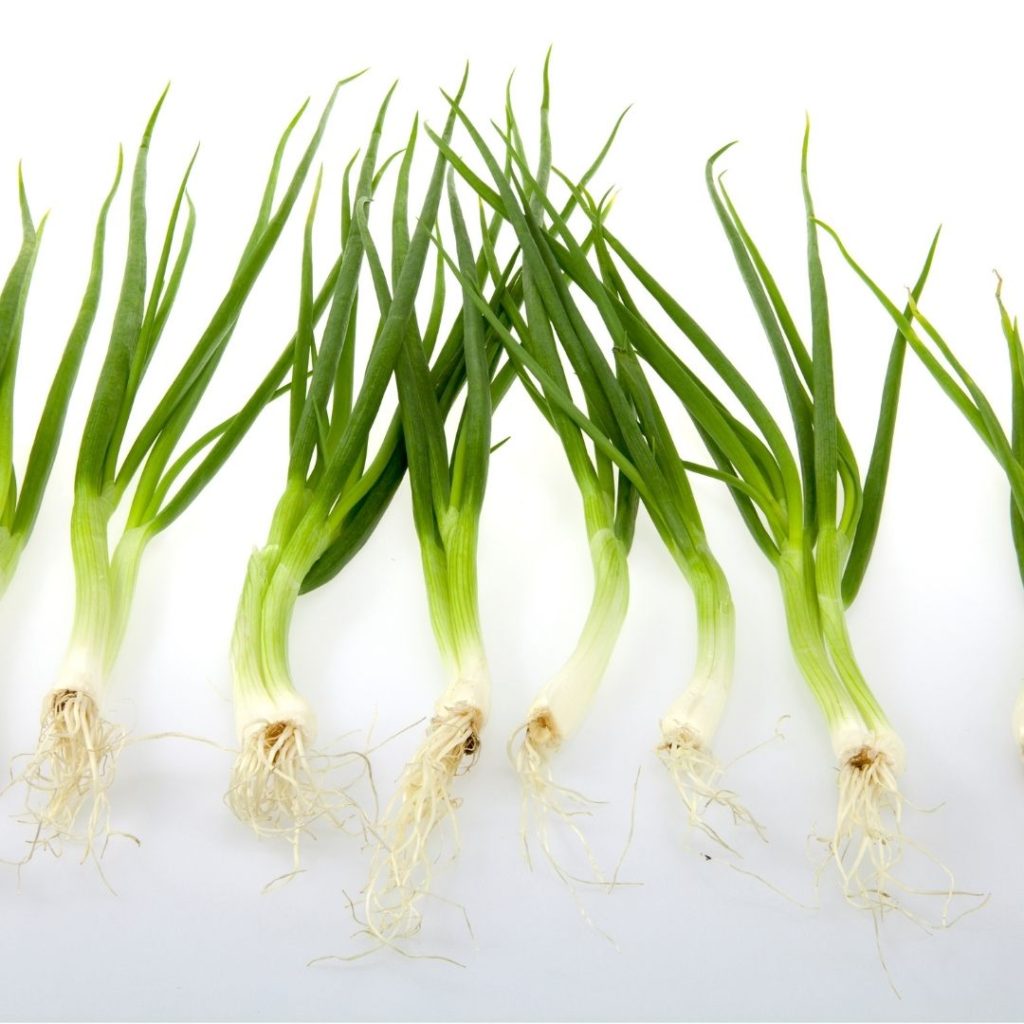
Onions are excellent appetizers when added to food for humans. However, they contain sulfoxides and disulfides, which make them food dogs can’t eat. These elements cause anemia when consumed by dogs. They also damage red blood cells.
22. Pepper
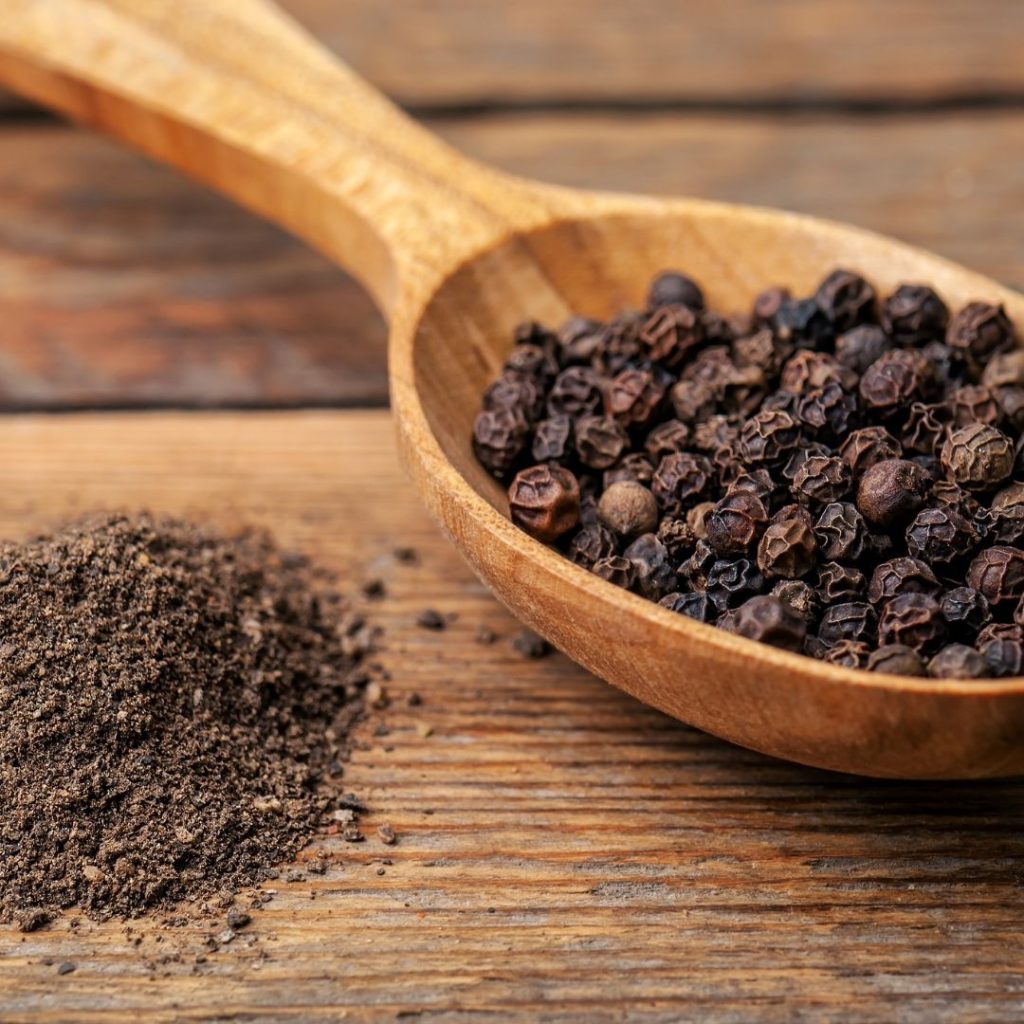
While dogs are typically carnivores, feeding them with veggies has various health benefits. Ensure that you chop the peppers and veggies before feeding your dog. You could also puree and steam them, making them easier to consume and digest. However, o not overdo it, as it could cause sickness.
23. Plum Pits, Peach, and Persimmon
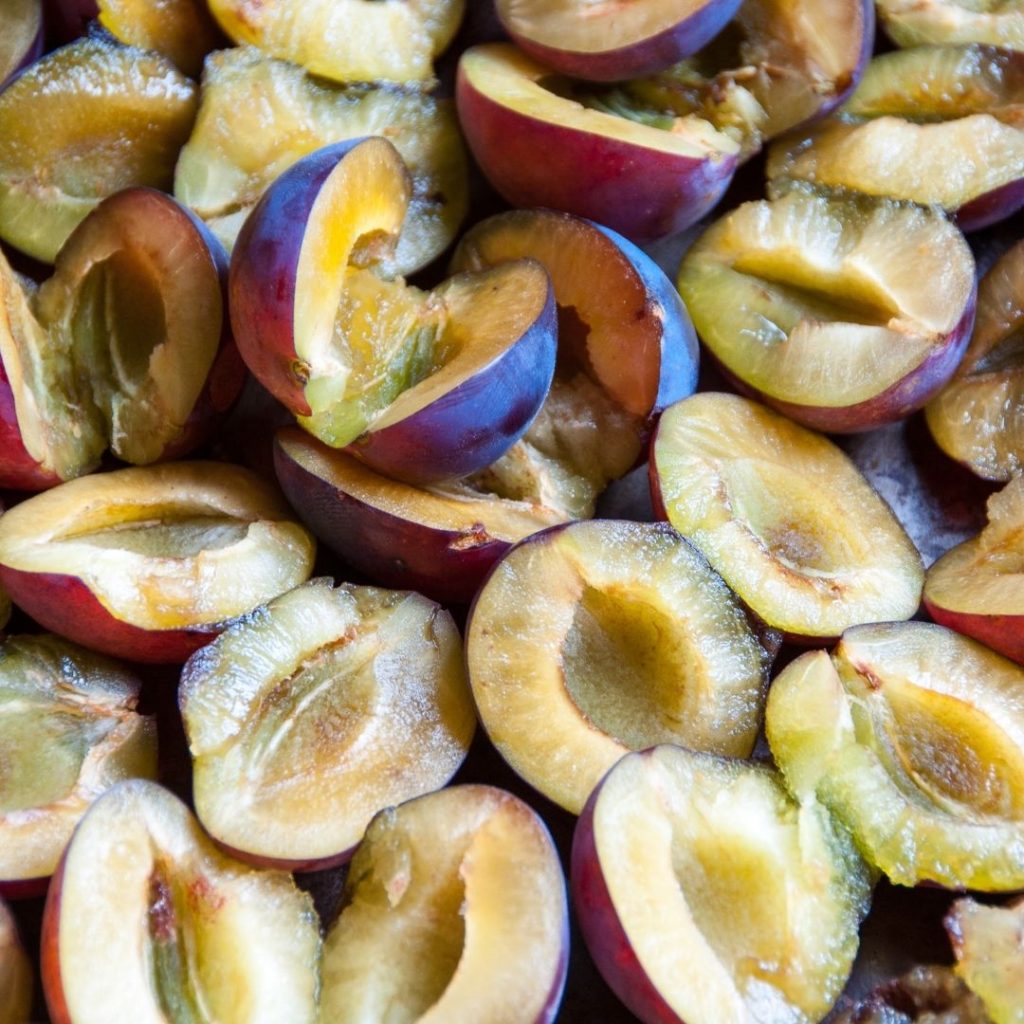
Everyone looks forward to enjoying fruits, especially peaches and plums. However, these are some of the foods dogs can’t eat, thanks to how much they cause intestinal issues. Peach and plum pits come with cyanide, which is toxic. This toxic element exposes your dog to breathing difficulties, weakness, and other health issues. Ensure that you limit its consumption.
24. Raw Fish and Meat
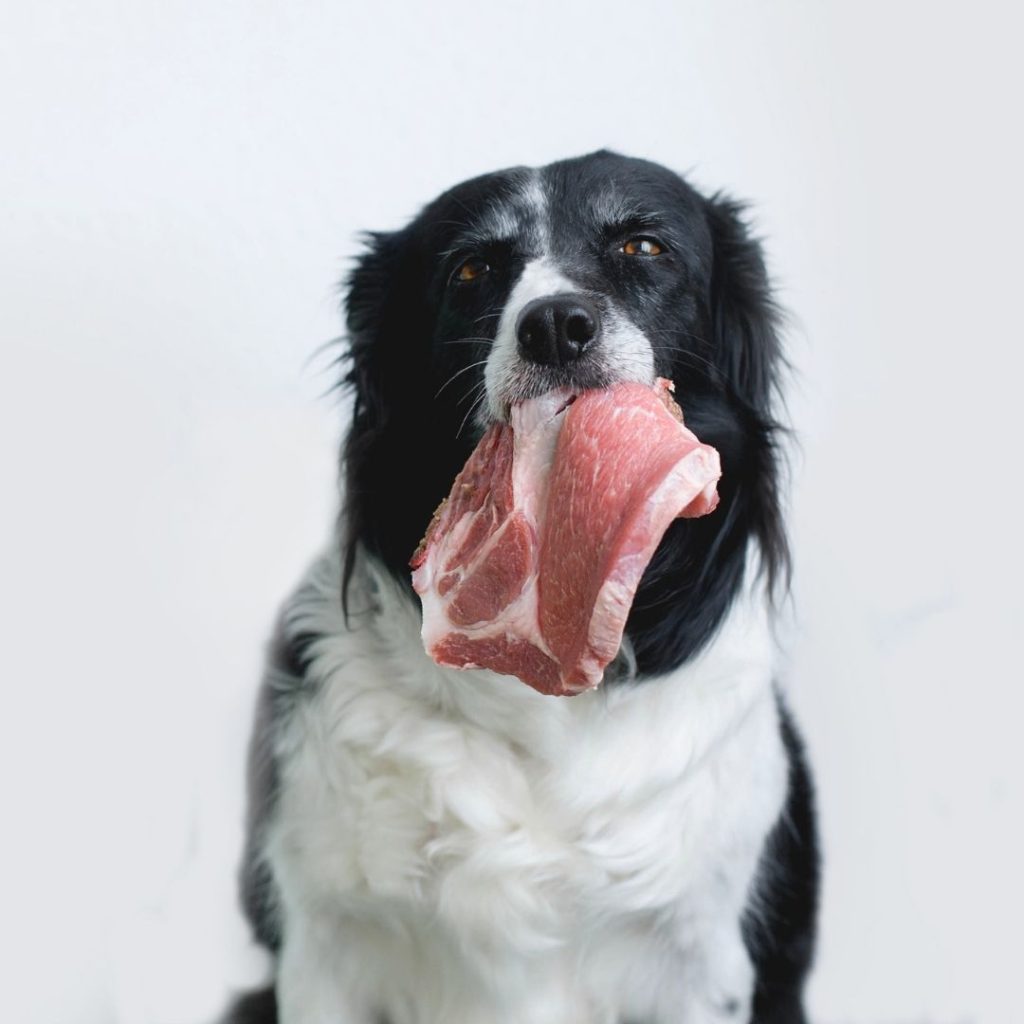
Raw meat gets contaminated by bacteria that cause food poisoning. Some fish could come with a parasite that causes SPD. Upon ingesting these foods, your dog experiences vomiting, enlarged lymph nodes, and fever. On the other hand, cooking these meats helps kill the parasites.
25. Rhubarb and Tomato Leaves
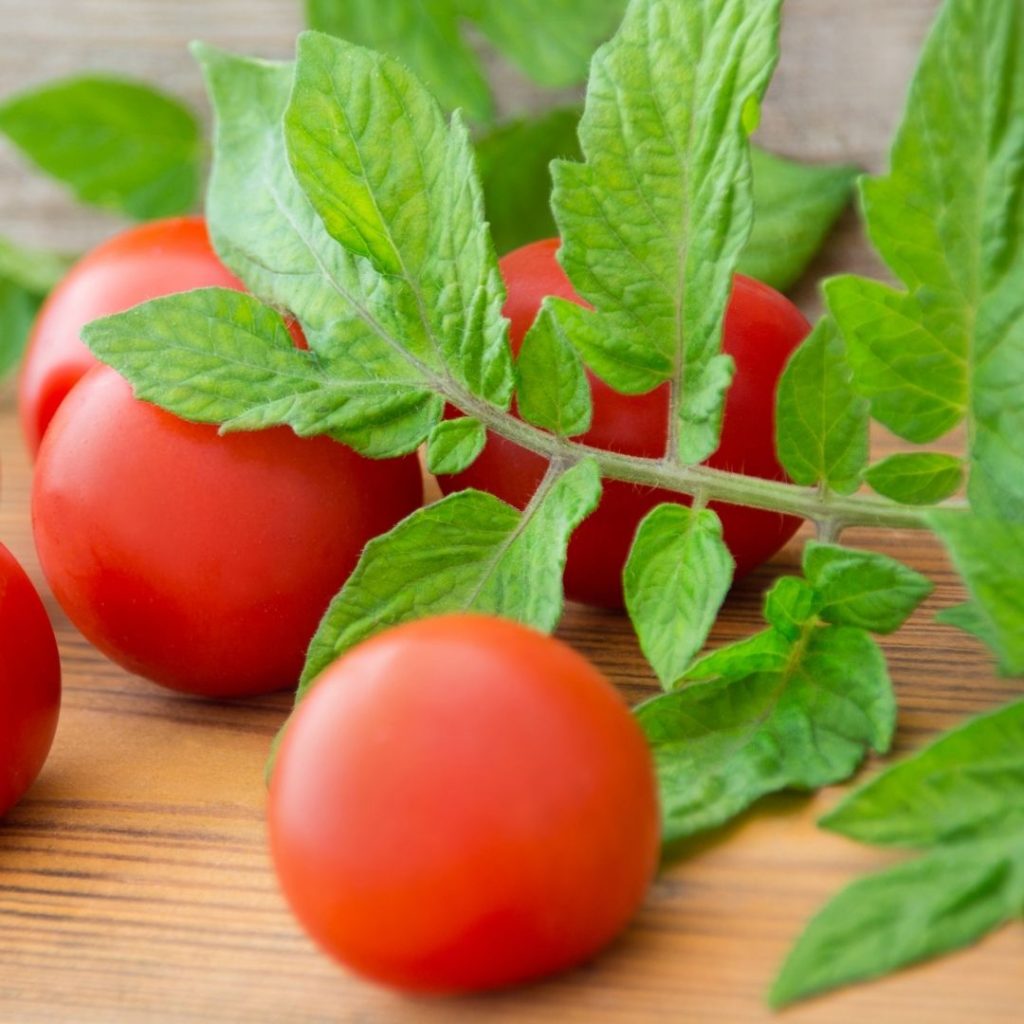
Tomatoes are excellent flavoring agents. However, these vegetables have oxalates, which result in vomiting, fever, tremors, and lethargy when consumed. Diarrhea and even blood urine are inevitable.
26. Salt
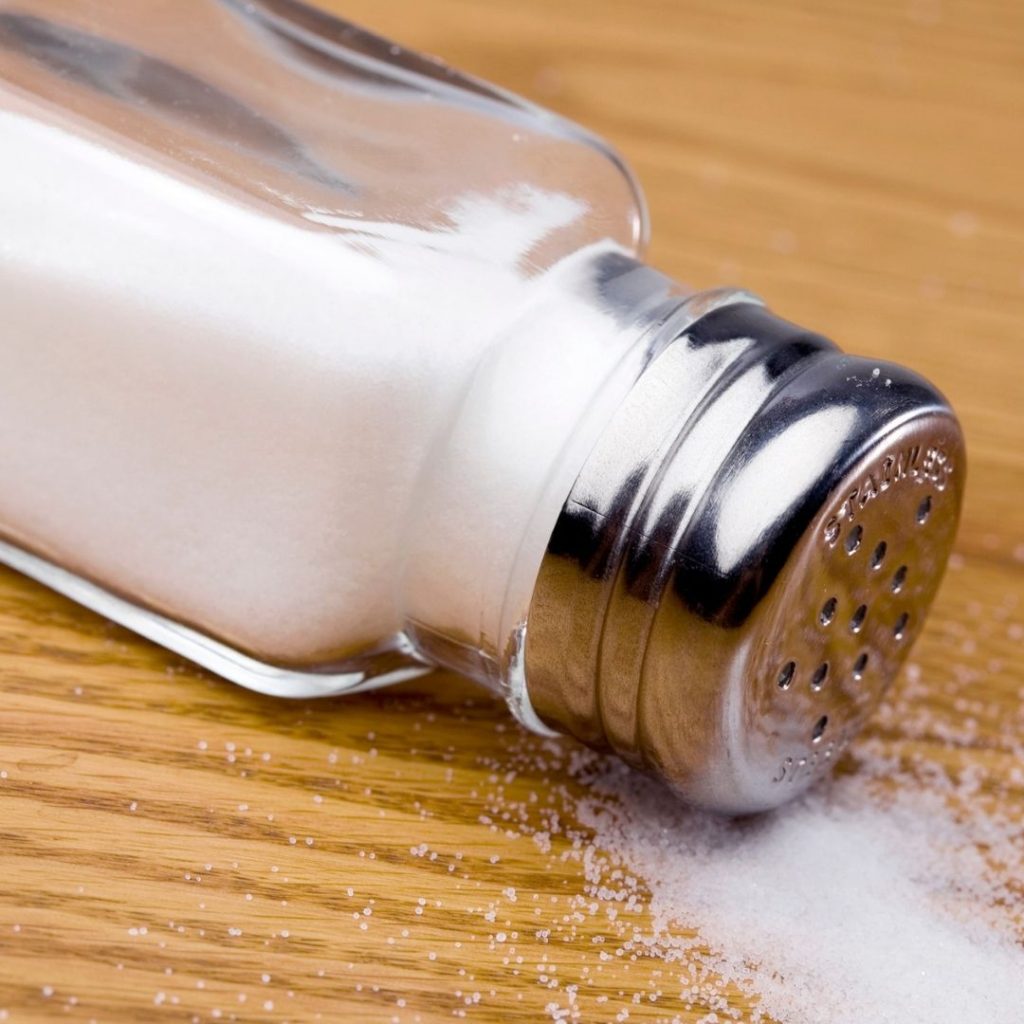
Too much salt causes sodium ion poisoning in dogs, resulting in depression, diarrhea, and vomiting. Its role in enhancing temperatures, tremors, and even fatality is far-reaching.
27. Sugar
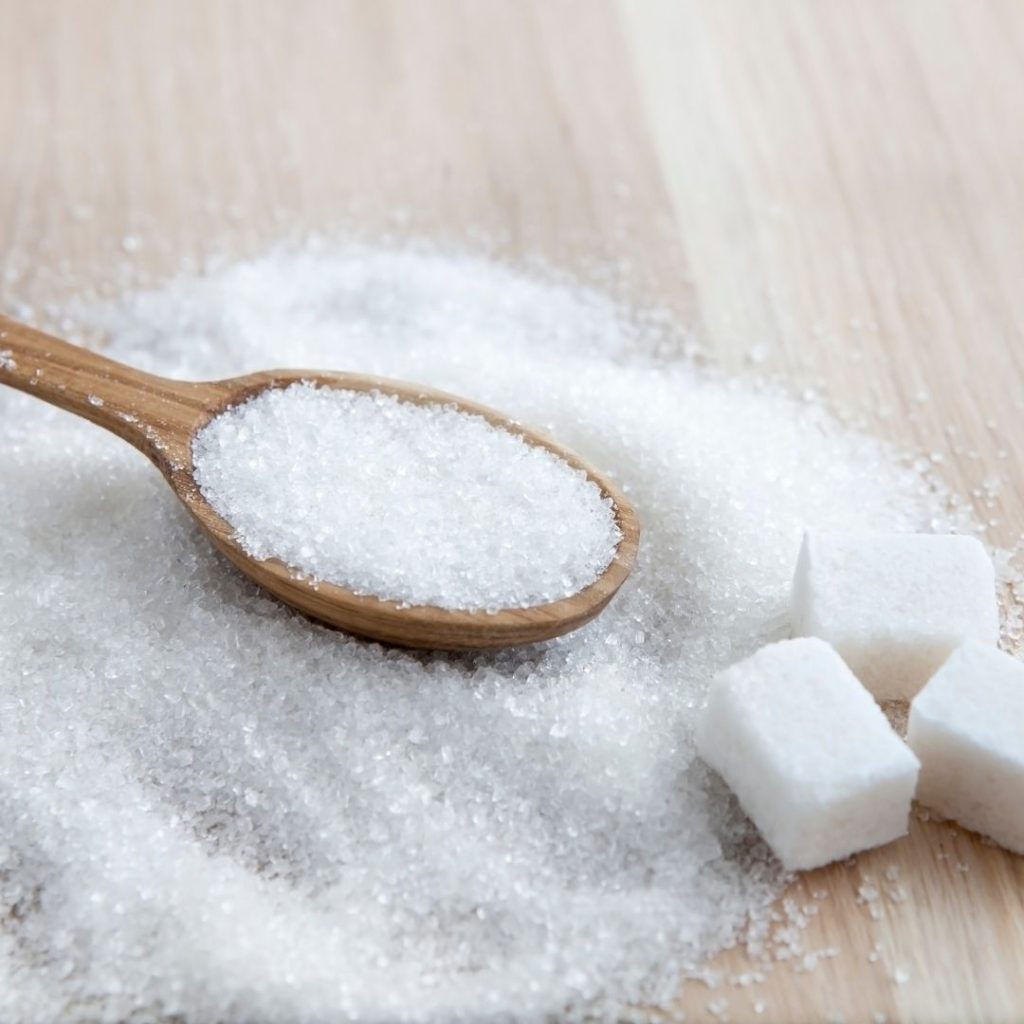
Foods containing sugar pose dental issues, diabetes, and obesity among dogs. You can avoid this by considering corn syrup, which is less harmful and even less expensive.
28. Tobacco
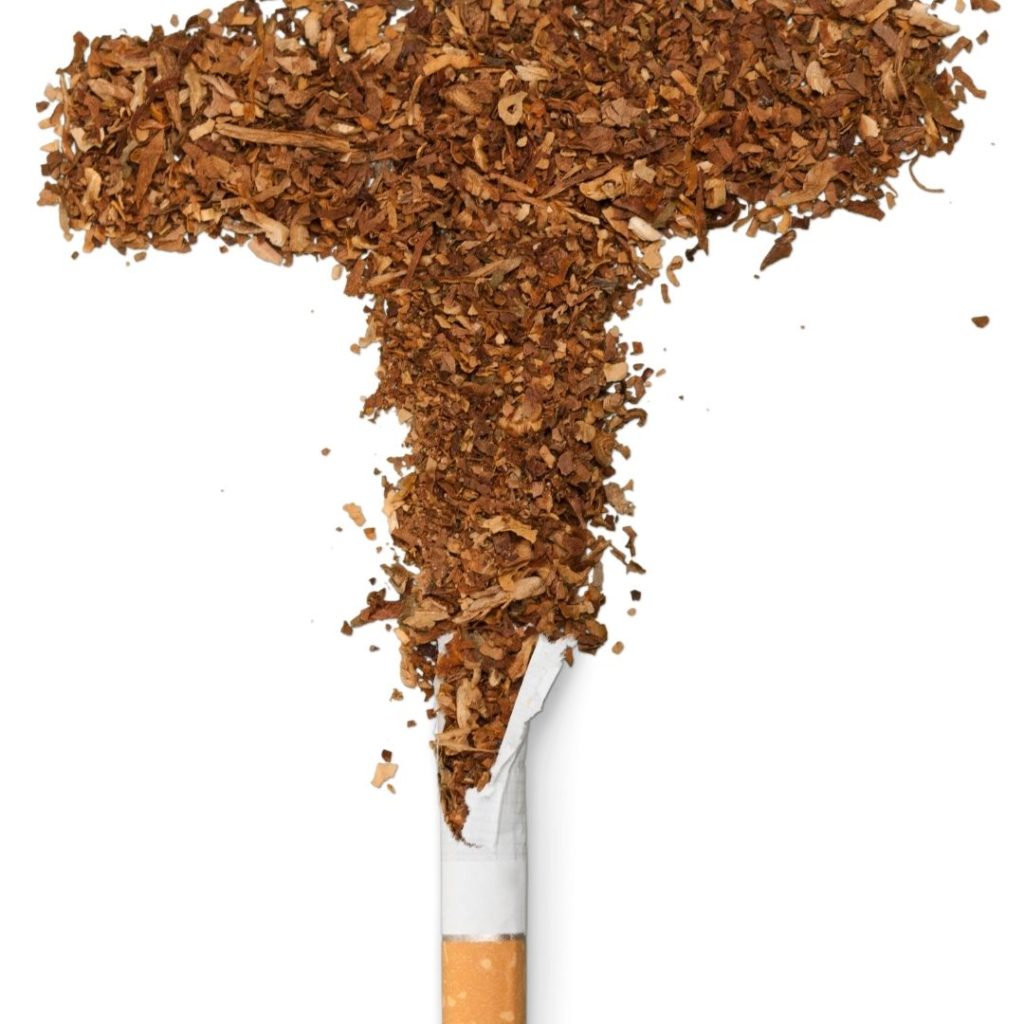
Tobacco comes with nicotine, which causes weaknesses, elevated heart rates, tremors, and vomiting among dogs. Its symptoms suffice within an hour of ingestion.
29. Xylitol
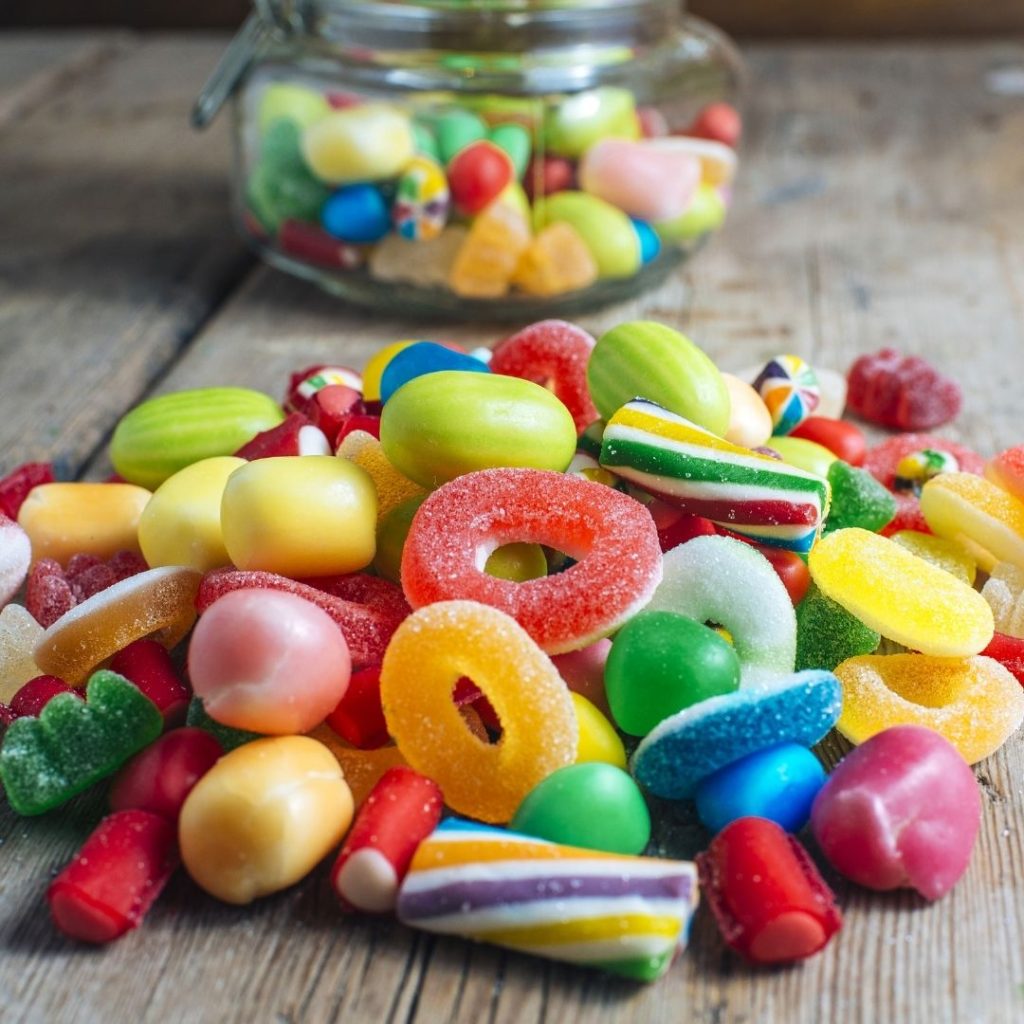
Xylitol is a sugar alcohol, and it is common in baked products, including peanut butter. Its effects in dogs will include seizures, low blood sugar, and liver failure. Death could happen too. Remember, intoxicated dogs are vulnerable to breathing problems. It would be best to avoid giving your any foods that are rich in alcoholic content.
30. Yeast
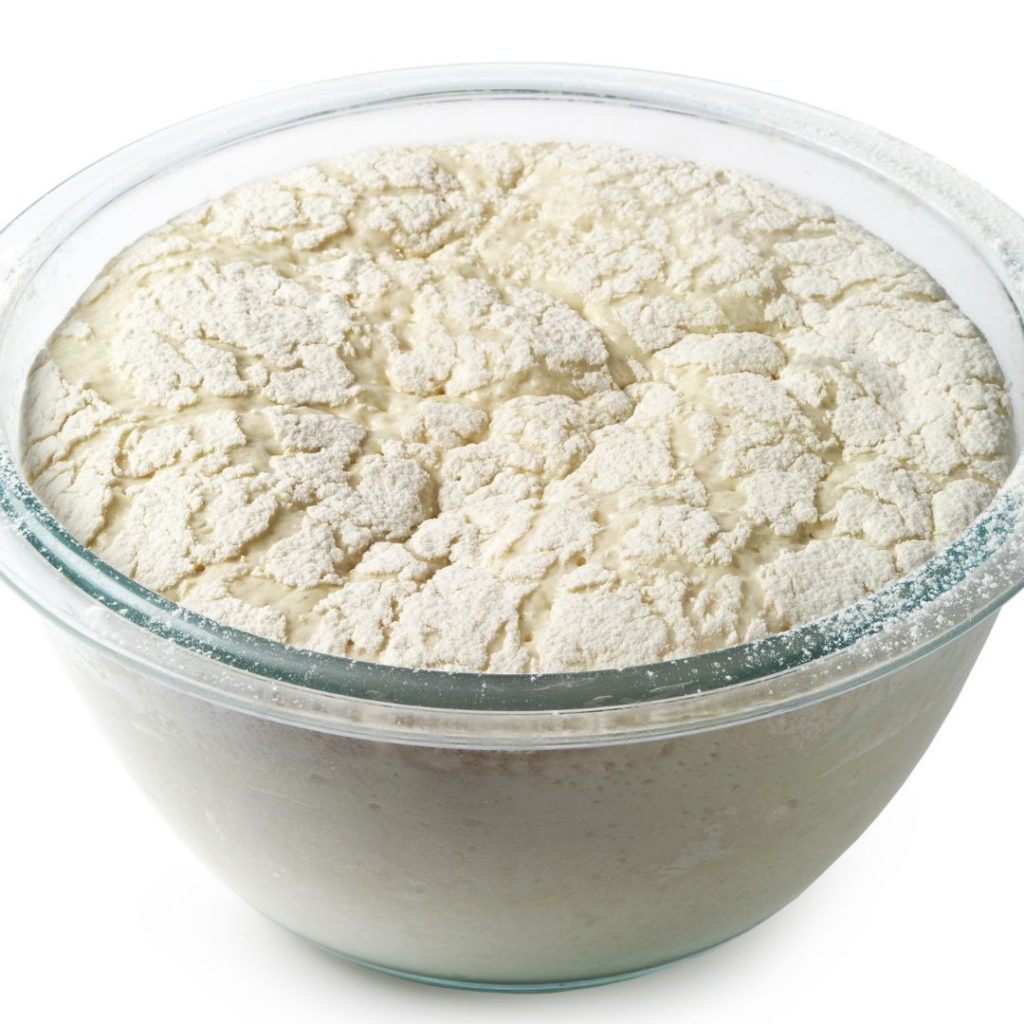
When ingested, yeast expands in the tummy of a dog, thanks to how fast it ferments. It could result in lots of farting, gas, and discomfort. If taken in excess, it could rapture the stomach and intestines. Further, the yeast in alcohol could also pose a problem. Ensure that you do not feed your dog any food containing yeast elements.
